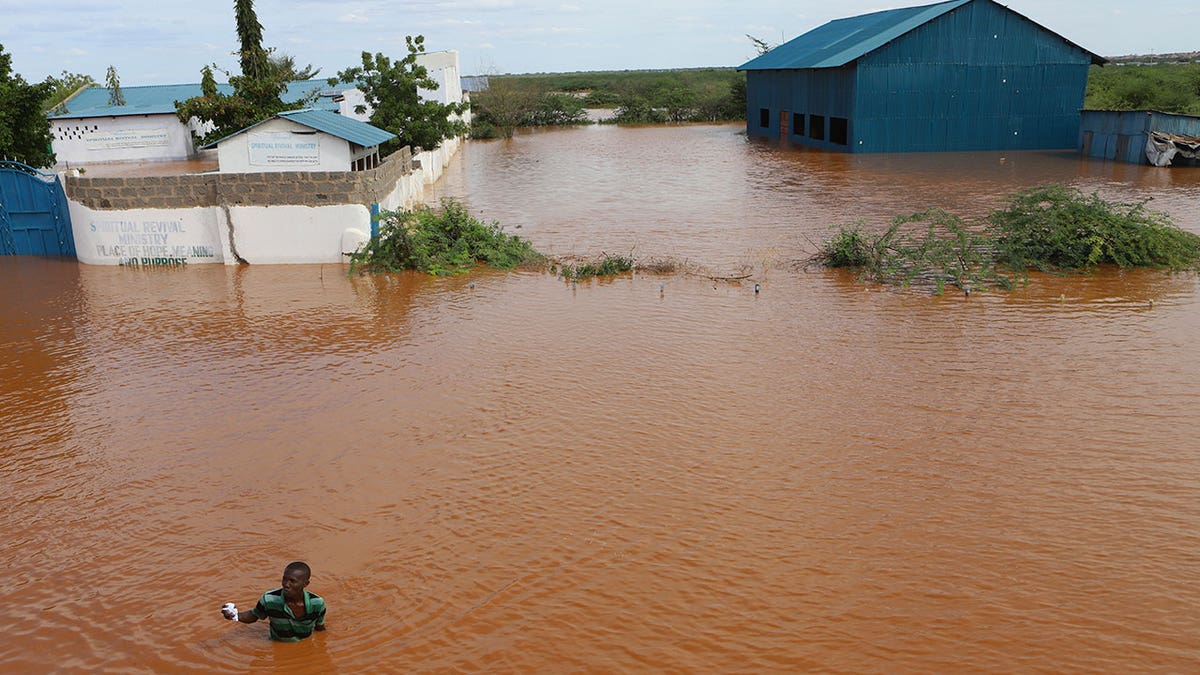Fox News Flash top headlines for May 22
Fox News Flash top headlines are here. Check out what's clicking on Foxnews.com.
Extreme weather attributed to the El Niño phenomenon is causing a surge in hunger in several countries, including Zambia and Afghanistan, the UN's World Food Programme said Wednesday, and called on donors for much-needed help.
El Niño is a natural, temporary and occasional warming of part of the Pacific that shifts global weather patterns, and studies say that as the world warms, they may get stronger.
POWERFUL EL NIÑO COULD MEAN FEWER ATLANTIC HURRICANES, EXPERTS SAY
Tens of millions of people in southern Africa rely on the weather to grow food to feed themselves.
In a statement, the WFP warned that southern Africa was the "epicenter of the crisis" after a cycle of floods and drought has battered the region over the last three years. Three countries, Malawi, Zimbabwe and Zambia, are the worst affected and have seen between 40-80% of their staple corn crops wiped out by drought this season, leaving millions impacted, according to the UN food agency.

A man swims from a submerged church compound after the River Tana broke its banks following heavy rains at Mororo, border of Tana River and Garissa counties, North Eastern Kenya, Sunday, April. 28, 2024. Heavy rains pounding different parts of Kenya have led to dozens of deaths and the displacement of tens of thousands of people, according to the U.N. (AP Photo/Andrew Kasuku)
The WFP said executive director Cindy McCain had traveled to Zambia and seen how "severe drought has wiped out harvests in a region where 70% of the population relies on agriculture to survive."
"We can’t ask millions to wait for the next harvest season — a year from now — to put food on their tables," McCain said in a statement. "These families need our support today while we help to build a more resilient future."
WFP said its "teams have started to respond but US$409 million are needed for six months to assist 4.8 million people in Malawi, Zambia, and Zimbabwe."
Other countries, including Congo and Afghanistan, are facing similar problems due to changing weather conditions which have led to destroyed crops, livestock deaths and displaced people, causing a surge in hunger, the agency said in a separate statement.
This comes as hunger crises caused by conflict in Gaza and Sudan are already stretching the agency's aid capacity.
The WFP's call for aid came days after the regional Southern African Development Community made a plea for help after a special virtual meeting of leaders and government officials to discuss the impact of the extreme weather.
In a joint statement, the southern African countries said the region needed $5.5 billion to help more than 61 million people.
There had been a "multifaceted and cascading impact of the El Niño-induced drought and floods across multiple sectors," the regional bloc said, noting how it had caused other problems, such as contributing to large and deadly outbreaks of the water-born cholera disease. Countries that depend on hydroelectric generators, like Zambia, are struggling to produce enough electricity because of the drought.
Alongside El Niño, the southern African region has recently seen a series of tropical cyclones that scientists said were likely made stronger and wetter by human-caused climate change and the increase in global temperatures.
While the African continent contributes the least to climate change, it is expected to suffer the most. Poorer countries are generally not as well-equipped to deal with the impact.
Even before the floods and drought, food insecurity and malnutrition were already at alarming levels in Malawi, Zimbabwe and Zambia and humanitarian assistance had stalled because of funding shortages for aid, WFP said.
The three countries have all declared national disasters over this year's drought, and others have provided equally grim assessments.
CLICK HERE TO GET THE FOX NEWS APP
The United Nations humanitarian agency said this month that around half of Zimbabwe's population of 15 million needed "lifesaving and life-sustaining" help because of the drought.
Last week, the Action Against Hunger non-profit warned that "a hunger crisis may be imminent" in Kenya in East Africa after catastrophic floods displaced more than 250,000 people.

